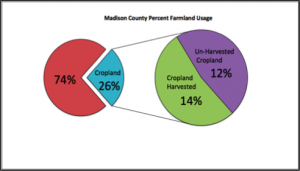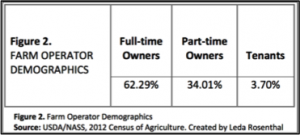This post was written by Leda Rosenthal ’18
The Cornell Cooperative Extension (CCE) in Madison County serves the county’s greater wellbeing by supporting local farmers to maintain, promote and expand their operations. CCE Madison County’s largest event of the year is Open Farm Day, which took place on July 25th. Open Farm Day is a promotional event where farms across the county encourage visitors to come and participate various on-farm activities and experiences, including, but not limited to, farm tours, petting zoos, and demonstrations. As a fellow at CCE, I have had two major research projects in addition to our preparation for Open Farm Day.
My research projects were both based on alternative farming. The first was focused on alternative methods and yielded a typology of methods best suited for Madison County. My most significant contribution, and second project, was was a literature review of agritourism—which is the tourism of farms, both hands on or educational— that included recommendations for Madison County and its potential engagement in agritourism.
Madison County farms have prime demographics for successful agritourism. To begin, only 26% of the county’s farmland utilized, which means that there is a significant amount of land could be made profitable (Figure 1). Secondly, almost all farm operators in Madison County are full-time owners meaning most have the agency and land to engage in agritourism (Figure 2).
My research has revealed that agritourism is most successful when marketed as a memorable experience. To retain visitors is a sign of success, however, monetary gains are also a clear indicator of whether or not a venture is successful. Most agritourism ventures do not require a large investment. For instance, pick-your-own operations only require a few purchases beyond the plants themselves.
There is no simple science to engaging in agritourism. All across the world different farms have begun to experiment. However, there are a few constants in successful agritourism. First, farmers who target a specific market typically are more successful. One must think to “whom” are they selling? Typically urban markets prefer more leisurely experiences whereas those from rural communities may prefer working on a farm or participating in more authentic experiences. Thus, one must consider what is best for their farm and location. One can also increase income from value-added products, like souvenirs without adding expenditure. Marketing the community as a whole is also proven successful. It is important to remember that if the community itself is not unified and enjoyable, it is unlikely the consumer will make return visits– which is the goal. Thus, it is important to support fellow community businesses to increase community’s gross income, too. Finally, success in agritourism is strongly correlated to a degree of academic achievement. Farmers must be innovative and continually change practices to stay competitive in the market and to continue to boost their own farm, and the community’s holistic value. All demographics have different expectations, but It essential to try to best fulfill these wants and need. The return of visitors to ones farm is the best sign of consumer retention, or thus, success. Agritourism cannot alone save the “American Farmer,” but an increase in local purchases and visitation to farms is a step in the right direction.



